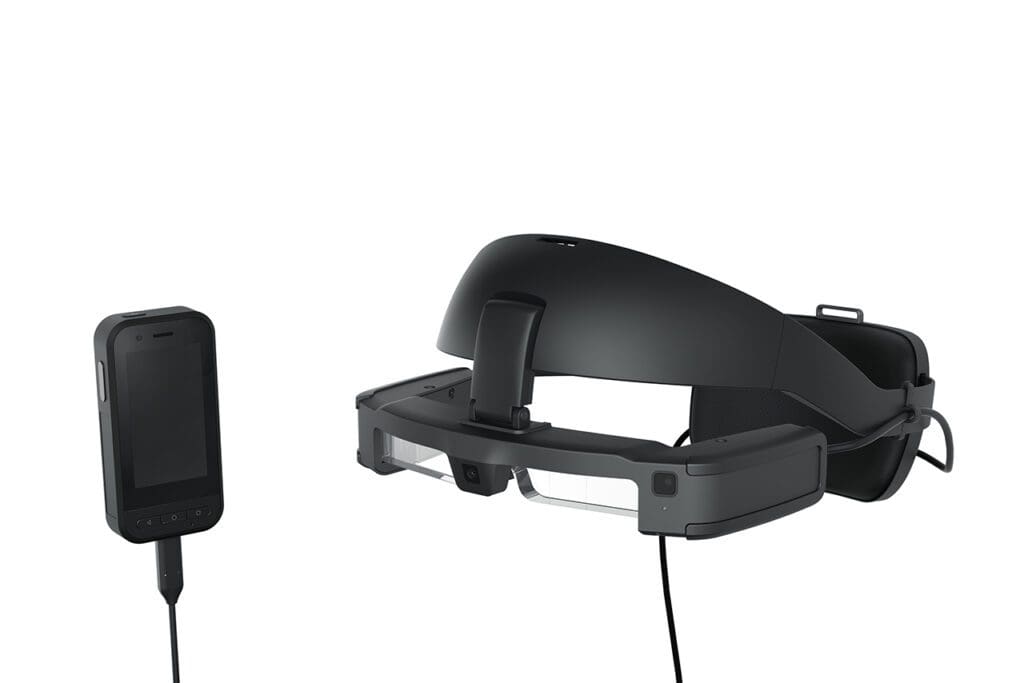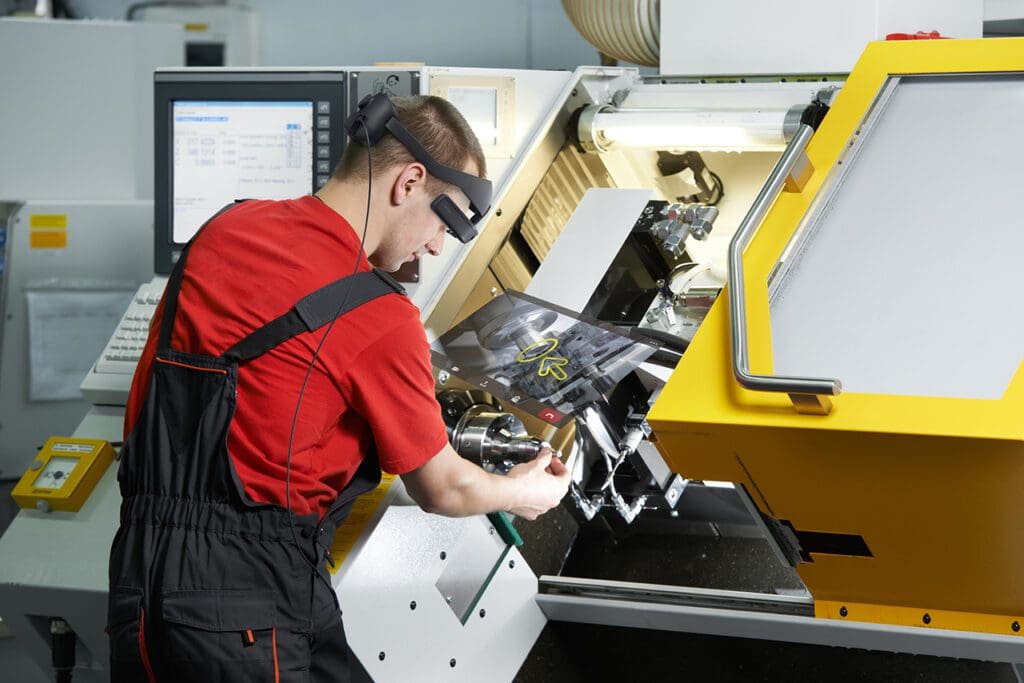Life as a field engineer working with Augmented Reality
How AR is improving and enriching the life of a field engineer
Alex Zaretsky brings a wealth of industry experience, having spent over two decades working in both R&D and commercial roles for major hi-tech manufacturers. In this article he discusses how Augmented Reality is improving and enriching the life of a field engineer.
Alex Zaretsky of Epson discusses Augmented Reality


Background
Alex graduated with a BEng (Hons) degree in Electronics & Embedded Systems from Northumbria University at Newcastle upon Tyne . He gained a strong technical background through working in the semiconductor industry from 2000.
Since the beginning of 2018, he has served as a key member of Epson Europe’s New Market Development team, driving the development of partner ecosystems for the Optical Engine Module and the related Go-to-Market strategy. Additionally, he is the European Product Manager for Moverio AR smart glasses. Alex is passionate about sharing his knowledge and experience of augmented reality innovation.


Customer facing roles
You have worked as an engineer but also in customer facing roles. Why would you recommend these roles?
After gaining extensive experience in designing and developing embedded systems across diverse industries, I decided to transition my career towards customer-facing roles. This shift stemmed from my personal inclination towards human interaction, as I discovered my passion for working with people surpassing my affinity for machines. It’s important to note that career preferences are subjective, as individuals we have unique values and comfort zones. Additionally, I believed that I could contribute more significantly in commercial roles. As they presented opportunities to create tangible impact and achieve notable accomplishments, in contrast to the realm of product development.
What do you think makes the type of engineer who can become more customer facing?
The type of engineer who can become more customer-facing typically possesses a combination of technical skills, strong communication abilities, empathy, and a genuine interest in understanding and addressing customer needs.
Product Management and Market Development
What makes a good Product or Market Development Manager? (e.g., mixture of electronics and software/hardware knowledge, good communication skills etc.)
A Product Manager and Market Development Manager are two different roles.
A Product Manager is responsible for effectively managing the business for a product or a portfolio. This includes pricing, managing, and maintaining relevant systems and tools, creating marketing collateral, setting pricing, product forecasts, business planning, regional stock allocations and more…
While a Market Development Manager is responsible for developing market strategies (Go-To-Market) including the definition of the target market, target customer and the value proposition, as well as generating leads.
Both roles demonstrate an expert level of their target market knowledge, competitive landscape, and technical expertise. Also, the roles require a good awareness of the client’s complete business. Furthermore the roles involve effective communication with most of the departments including finance, logistics, marketing, sales, engineering etc.
Why would you recommend moving into these areas from doing a pure development/design role?
By possessing a combination of technical knowledge, market understanding, strong communication skills, leadership abilities, and adaptability, a good Product or Market Development Manager can effectively drive the development of innovative products or explore new market opportunities, ultimately contributing to the organization’s growth and success.


Improving the life of field engineers
How do you think AR is improving and enriching the life of a field engineer?
Augmented Reality (AR) Smart Glasses have the potential to significantly improve and enrich the life of a field engineer by providing real-time access to information, enhancing collaboration, and simplifying complex tasks.
There are several ways in which AR headsets can benefit field engineers.
Workflow guidance
AR smart glasses provide field engineers with real-time access to digital information, such as 3D models, schematics, and instructions, overlaid onto the real-world environment. This improves visualisation, simplifies complex tasks, and enhances collaboration by allowing engineers to connect with remote experts and receive guidance or support. Also it offers step-by-step visual instructions overlaid on the real-world environment. Field engineers can follow these instructions for complex tasks, such as assembly, or equipment maintenance. Additionally, it provides real-time diagnostic information and sensor data, assisting engineers in troubleshooting and identifying issues.
Service and maintenance
The most significant benefit is for remote assistance, revolutionizing the way experts provide guidance and support to individuals in distant locations. With AR glasses, a field technician or worker can wear the glasses and share their live view with a remote expert in real-time. The expert can then overlay digital annotations, instructions, or visual cues directly onto the technician’s field of view, helping them troubleshoot issues, perform complex tasks, or receive step-by-step guidance. This real-time collaboration eliminates the need for physical presence, reducing travel costs and time delays. AR glasses enable remote experts to see exactly what the technician sees, facilitating clear communication and enhancing efficiency. By leveraging AR glasses for remote assistance, organizations can improve problem-solving capabilities, increase productivity, and ensure accurate and timely resolution of issues, all while enabling experts to provide immediate support regardless of their geographical location.
Training
Finally, AR glasses can be used for training purposes, simulating realistic scenarios, and providing interactive modules for skill acquisition. It also facilitates knowledge transfer by capturing experiences and best practices in a visual and immersive manner. Additionally, this concept enhances safety by overlaying safety guidelines, hazard warnings, and real-time environmental data to help engineers make informed decisions and mitigate risks.
The aftermath of the Covid pandemic
The pandemic has sparked an increased demand for AR smart glasses, as industries have sought innovative solutions to adapt to the new normal. With social distancing measures and travel restrictions in place, the need for remote collaboration and virtual communication has intensified.
In sectors like healthcare, manufacturing, and field services, AR smart glasses have become invaluable tools for remote training, virtual inspections, and telemedicine, enabling professionals to work efficiently and safely while minimizing physical contact.
As businesses continue to prioritise health and safety measures, as well as sustainability, the demand for AR smart glasses is expected to grow. This will foster a new era of remote collaboration and transforming the way we work and interact.
Epson and AR smart glasses
Epson has been manufacturing and selling AR smart glasses since 2011.
Recently, they introduced an industrial-grade model– Moverio BT-45CS which stands out in the marketplace due to its unique features and exceptional image quality.
Leveraging our expertise in projectors, we have developed a product that delivers unparalleled visual clarity and performance.
Further information on Augmented Reality for a field engineer
Further information if you are interested in learning more from Alex Zaretsky.
Additional reading
Some of our other members share their field engineering experience.


Responses